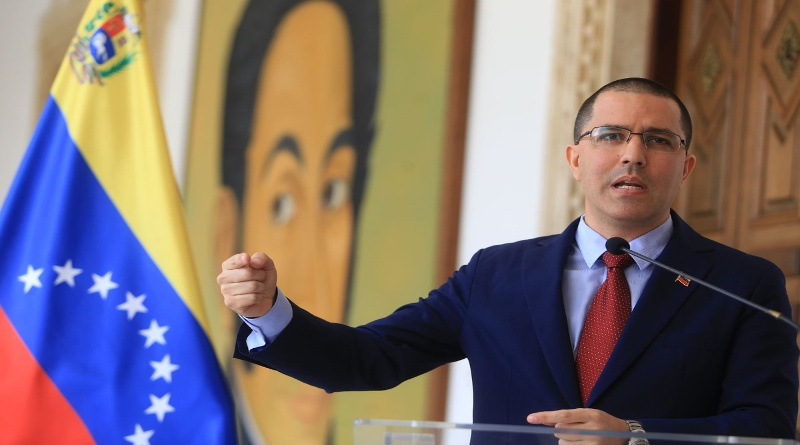Venezuela has “categorically rejected” US President Joe Biden’s renewal of Executive Order 13692.
The renewal extends a state of national emergency which has been the basis for Washington’s sanctions regime
against Venezuela. The decree states that Venezuela represents an
“unusual and extraordinary threat to the [US] national security and
foreign policy.”
The order has been renewed annually by both former presidents Donald Trump and Barack Obama since its initial signing in 2015, and been widely denounced by the international community, as well as at the United Nations, with over five million Venezuelans signing a petition demanding its withdrawal.
Penning his decision to Congress last Wednesday, Biden argued
that “The situation in Venezuela continues to pose an unusual and
extraordinary threat to the national security and foreign policy.” He
offered no further explanation.
In response, Venezuela’s Foreign Ministry issued a communiqué
describing the executive order as “illegal,” “cruel,” and “contrary to
international law.” Foreign Minister Jorge Arreaza also reiterated that
Venezuela presents no threat to the national security of the United
States or to “any country in the world.”
Finally, Arreaza highlighted that the extension comes despite calls
to lift the state of national emergency, most recently from the UN
Special Rapporteur on sanctions and human rights Alena Douhan. The
independent UN expert published her initial recommendations last month following a 12-day visit to the country, which included the lifting of US unilateral coercive measures.
More confessions over Operation Gedeon
The White House strengthened its support for Venezuela’s self-proclaimed “Interim President” Juan Guaidó last week during a video conference
in which US Secretary of State Antony Blinken “stressed the importance
of a return to democracy in Venezuela through free and fair elections.”
Guaidó has enjoyed US backing during a number of failed attempts to oust Maduro, including an attempted military putsch in April 2019, the reactivation of the Inter-American Treaty of Reciprocal Assistance (TIAR) military accord later that year, and a coastal paramilitary landing codenamed Operation Gedeon in May 2020.
Operation Gedeon, which was contracted to Miami-based private
“security firm” Silvercorp and former green beret and Iraq war veteran
Jordan Goudreau, led to a number of arrests, both in Venezuela and Colombia. Goudreau and other Gedeon organizers set up training camps
for Venezuelan military deserters in northern Colombia, where the
vessels launched from. The operation looked to kidnap Maduro and seize
key government installations.
Most recently, three Venezuelans detained in Colombia last September pleaded guilty to their involvement in a trial session in Bogotá.
Former National Guard Major Juvenal Sequea, Captain Juven Sequea and
civilian Rayder Ruso all introduced a plea bargain on Friday for the
lesser charge of providing advice and logistical support to illegal
armed groups, which holds a maximum sentence of 6-10 years. Both Sequeas
are the older brothers of the confessed Gedeon commander Captain
Antonio Sequea, who was detained after the operation was neutralised and
is currently awaiting trial for terrorism and other charges in Caracas.
As part of the plea, the more serious charge of providing military
training to illegal armed groups, which carries a maximum sentence of 30
years, is likely to be dropped. Colombian law allows sentences of less
than eight years to be commuted to provisional liberty or house arrest.
A fourth defendant, Yacsy Álvarez,
who allegedly translated for Goudreau and helped set up a local
Silvercorp office in the Colombian coastal city of Barranquilla, has
denied all charges. Caracas has demanded that all four be extradited to
Venezuela.
In August, two US former marines were also sentenced
to 20 years of prison in Caracas. Luke Denman and Airan Berry were
hired by Silvercorp and were captured on the landing vessels.
While the White House denies direct involvement in Operation Gedeon, confessions from those involved, including Goudreau himself, indicate that Washington and Bogotá
knew of the planned incursion and had green-lighted it. Guaidó likewise
tried to distance himself from the operation, in spite of his signature
appearing on a Silvercorp contract for the operation.
This article originally appeared on Venezuelanalysis

